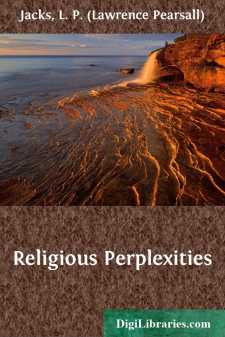Categories
- Antiques & Collectibles 13
- Architecture 36
- Art 48
- Bibles 22
- Biography & Autobiography 816
- Body, Mind & Spirit 145
- Business & Economics 28
- Children's Books 17
- Children's Fiction 14
- Computers 4
- Cooking 94
- Crafts & Hobbies 4
- Drama 346
- Education 58
- Family & Relationships 59
- Fiction 11834
- Foreign Language Study 3
- Games 19
- Gardening 17
- Health & Fitness 34
- History 1378
- House & Home 1
- Humor 147
- Juvenile Fiction 1873
- Juvenile Nonfiction 202
- Language Arts & Disciplines 89
- Law 16
- Literary Collections 686
- Literary Criticism 179
- Mathematics 13
- Medical 41
- Music 40
- Nature 179
- Non-Classifiable 1768
- Performing Arts 7
- Periodicals 1453
- Philosophy 66
- Photography 2
- Poetry 897
- Political Science 203
- Psychology 45
- Reference 154
- Religion 516
- Science 126
- Self-Help 85
- Social Science 82
- Sports & Recreation 34
- Study Aids 3
- Technology & Engineering 59
- Transportation 23
- Travel 463
- True Crime 29
Our website is made possible by displaying online advertisements to our visitors.
Please consider supporting us by disabling your ad blocker.
Religious Perplexities
Description:
Excerpt
The Source of Perplexity
The first and greatest of religious perplexities, the source of all the rest, arises in the mysterious fact of our existence as individual souls. Our perplexities spring from the very root of life. Why are we here at all?
Did we but know the purpose for which we are present in the world, should we not have in our hands the key to all the questions we raise about God, freedom, duty and immortality? But if we know not why we are here how can we hope to answer these other questions?
Or again, if we were forced to acknowledge that our existence has no purpose at all, would it not be futile to embark on inquiries concerning God, freedom, duty and immortality? What meaning could these terms have for beings who had learnt that their own existence was purposeless?
The Westminster Confession affirms that the true end of man is "To glorify God and to enjoy him for ever." A splendid saying! But might not God be better glorified, and more fully enjoyed, if the particular soul inhabiting my own body, with all its errors and defects, had not been suffered to appear upon the scene? Might not another soul, sent into the universe instead of mine, have played that part infinitely better than I can ever hope to do? Why, then, among the host of possibilities, did the lot fall upon me? Why me? Why you?
Why should God need to be glorified, or enjoyed, by you, by me, by anyone? Why should he need anything? If, as some affirm, the universe is the dwelling-place of the All Perfect, what reason can be given for the existence, side by side with that All Perfect one, or within him, of a multitude of imperfect images of his Perfection—like you and me? In the presence of One who has all purposes already fulfilled in himself what purpose can be served by our introduction into the scheme of things? If you and I, and all such, were to be blotted out forthwith and the All Perfect left in sole possession of the universe, where would be the loss? You and I are apparently superfluous.
Philosophers, both ancient and modern, have addressed themselves to this problem, not altogether, I think, without success, and yet not quite successfully. Their arguments have not removed but greatly deepened the mystery of our existence, bringing it to a critical point where we must either accept it or run away from life and its perils—to the point, in fact, where we must choose between life and death. If we choose life we accept the risk that its burden may prove too heavy for us. If death, we escape the perils of life but forfeit our share in its victories.
The former is the heroic choice; the latter the cowardly. As Carlyle was never tired of repeating, the ultimate question which every man has to face and answer for himself is this: "Wilt thou be a hero or a coward?" No philosophy can relieve us from the responsibility of having to make that choice. All that philosophy can do, and it is a great thing to accomplish even this, is to bring us to the point where we see that the choice has to be made....


